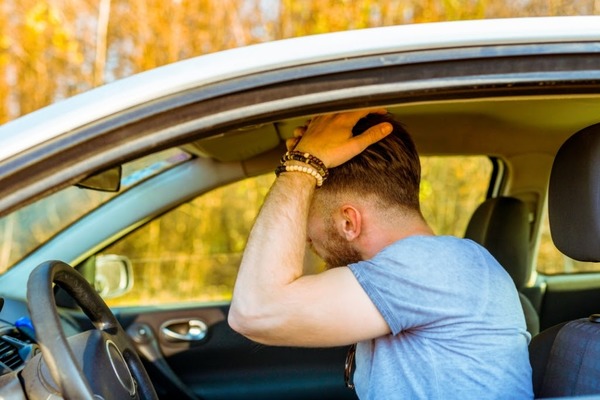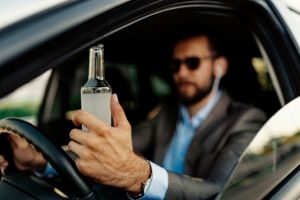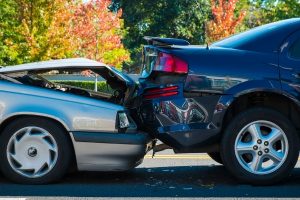
Free Consultation(203) 447-0000

Free Consultation(203) 447-0000

Common types of accidents caused by drunk drivers include head-on collisions, rear-end collisions, pedestrian accidents, wrong-way accidents, and single-vehicle accidents, among others. The consequences of drinking and driving can be severe. Intoxicated drivers take the lives of over 10,000 Americans every year and injure several times as many.
 Alcohol affects your driving abilities in the following ways:
Alcohol affects your driving abilities in the following ways:
The foregoing consequences of drinking and driving work synergistically. Your overall impairment is likely to be more than you might calculate if you were considering only each type of impairment individually.
Drunk drivers commonly cause several types of road accidents.
A drunk driver can become drowsy at the wheel or simply become distracted. Either way, a likely result is that the driver veers into oncoming traffic. Alcohol intoxication impairs vision, making the driverless able to stay on the right side of the centerline. A head-on collision can also happen at a road construction site when the driver fails to understand detour signs. These types of accidents can cause severe damage and frequently kill everyone in both vehicles.
Strictly speaking, wrong-way accidents could be classified as head-on collisions as well. A wrong-way accident may occur when a drunken driver accidentally turns onto a one-way street going the wrong direction, for example.
Another particularly devastating form of wrong-way accident occurs when an extremely intoxicated driver seeks to enter an interstate highway using the off-ramp instead of the on-ramp. This might happen because the driver cannot read and understand traffic signs or because they believe that no harm will result from such reckless behavior.
Tragically, the second type of wrong-way accident occurred in Carrollton, KY in 1988. A drunken driver collided head-on with a school bus, killing 27 people, most of them children. This accident resulted in regulatory reforms that improved the safety of school buses. Meanwhile, the driver was convicted of 27 counts of manslaughter.
 Drunk drivers are particularly likely to become involved in rear-end collisions for the following reasons:
Drunk drivers are particularly likely to become involved in rear-end collisions for the following reasons:
All of these triggers for rear-end accidents are ultimately caused by the impaired judgment that is characteristic of alcohol intoxication.
Drunk drivers typically experience impaired vision. A driver experiencing impaired vision might not even see a pedestrian, especially in the dark. Moreover, a pedestrian is likely to have little chance of survival when the driver’s first notification of the pedestrian’s existence is the “thump” that accompanies a collision. Catastrophic injury or death is all but certain.
In a typical one-vehicle accident, a drunk driver falls asleep at the wheel and their car veers off the road and crashes into a stationary object such as a tree or a road sign. Collision with a parked car (which is far more common) might also count as a one-vehicle accident if the vehicle was empty. The driver as well as any passengers could face serious injury or death.
The term “distracted driving” has become a code word for texting while driving and sometimes for speaking on a cell phone while driving. This term, however, can refer to any type of distraction that is created by the driver—shaving in the rear-view mirror while driving, for example. Alcohol intoxication renders a person less able to multi-task than they would be if they were sober. An accident is a likely consequence of distraction.
Passing a car on a two-lane road is a tricky business. You must judge your own speed, the speed of the car you’re passing, and the speed of any oncoming vehicles. Once you do this, you must calculate the time needed to complete the pass and the speed you need to perform the pass correctly. A drunk driver is particularly ill-suited to attempting such a maneuver, but they are particularly likely to attempt it. The consequences can be catastrophic.
Intoxication makes you sleepy. When you fall asleep at the wheel, however, or even doze off for a moment, the consequences can be disastrous. Intoxicated truck drivers are particularly susceptible to drowsy driving accidents, due to busy work schedules combined with alcohol intoxication. A likely consequence of an “asleep at the wheel” accident is a head-on collision with an 80-ton truck.
A jackknife occurs when the cab of a truck forms a “V-shape” with the trailer. An inexperienced driver can easily jackknife a big rig truck while completely sober. A drunk driver is even more likely to do so. The result is likely to be a collision, as the trailer strikes nearby vehicles or even pedestrians.
In a rollover accident, the vehicle, well, rolls over. It may roll upside down, or it may roll over and over and come to rest right-side up. Either way, a rollover accident is one of the deadliest types of accidents for anyone inside the vehicle. It is also potentially deadly for anyone in the immediate vicinity. Commercial trucks and SUVs are most likely to roll over due to their high center of gravity—especially with an impaired driver at the wheel.
Connecticut allows accident victims to recover their economic and non-economic damages— medical bills, lost earnings, pain, and suffering, etc.—from an at-fault driver. If the driver was drunk and showed reckless disregard for the safety of others, Connecticut will allow a court to award punitive damages that far exceed the amount of economic and non-economic damages. A court is never required to award punitive damages, however, and not all lawsuit judgments award punitive damages.
Drunk drivers often lack liability insurance, and even when they do carry insurance, they typically carry only the minimum liability coverage—$25,000 per person and $50,000 per accident. Often, this is not enough to pay the claim. An insurance payout will be particularly inadequate if the victim wins punitive damages against the drunk driver. Fortunately, under certain circumstances, the victim can sue a bar that sold alcohol to the drunk driver.
Connecticut General Statutes Section 30-102 states that a vendor (such as a nightclub or its employee) that provides alcohol to an intoxicated person bears liability for any injuries that the person may cause a third party as a consequence of intoxication. A bar or other employer bears liability for the wrongful acts of its employees, such as bartenders.
The police probably arrested the drunken driver for DUI (driving under influence) at the scene of the accident. If the court eventually acquits the driver of driving under influence, will your personal injury claim fail? Not necessarily. The standard of proof that applies to criminal liability is a lot higher than the standard of proof that applies to a personal injury or to wrongful death lawsuits. You can still win your claim even if the criminal court acquits the defendant.
The standard of proof that you must use to win a civil claim involving DUI is known as “preponderance of the evidence,” which essentially means “more likely than not” or “50 percent plus a feather.” Although it is much easier to meet this standard than to meet the “beyond a reasonable doubt” standard that applies in criminal trials, you must still put forth solid evidence.
Drunk driving is a crime. Causing an injury accident while intoxicated is a felony, and causing a death that way is a very serious crime known as “negligent homicide with a motor vehicle.” Although all these acts are crimes, they are also civil offenses that can entitle the victim to a large amount of compensation.
None of your rights are useful, however, unless you know how to enforce them. Fortunately, we know how to help. If a drunk driver has turned your life upside down, contact Berkowitz Hanna for a free consultation so that we can listen to your story and answer your questions. Call or contact us online. We’re looking forward to hearing from you.
Berkowitz Hanna
